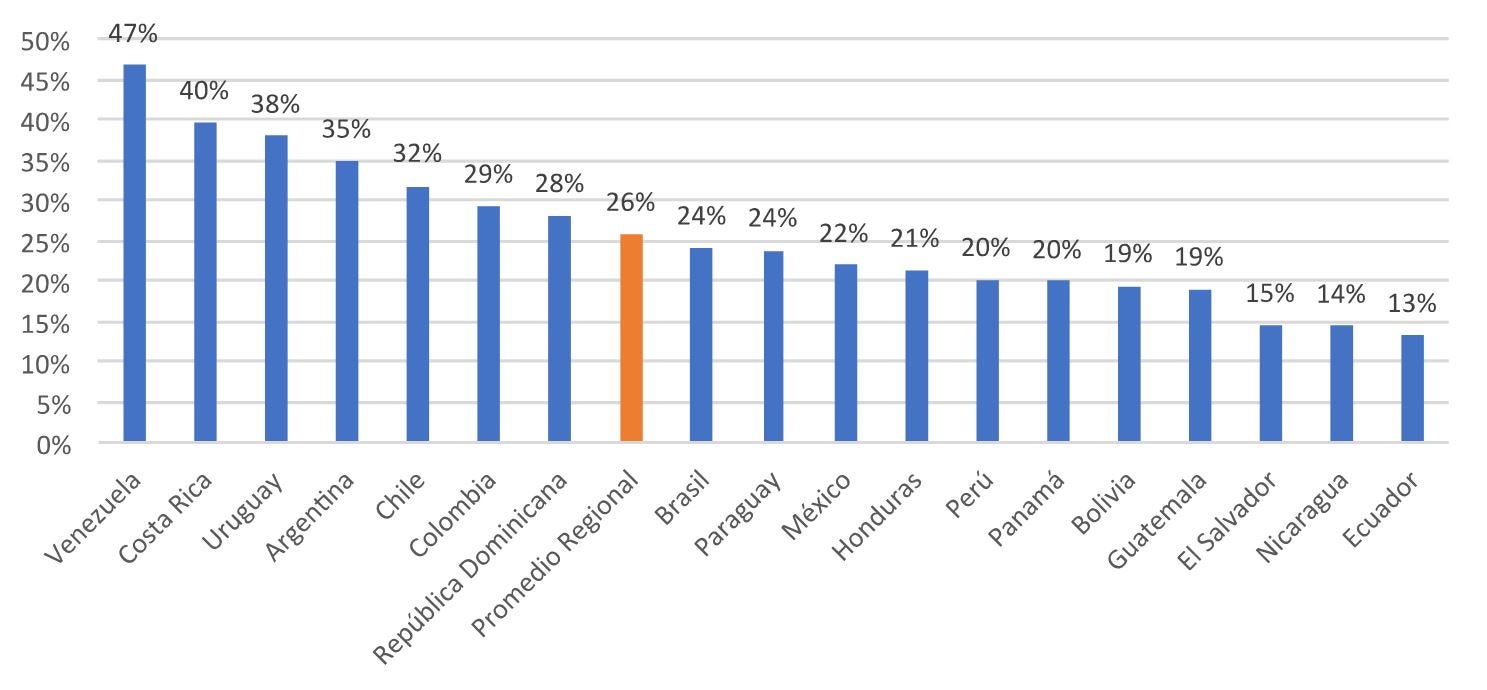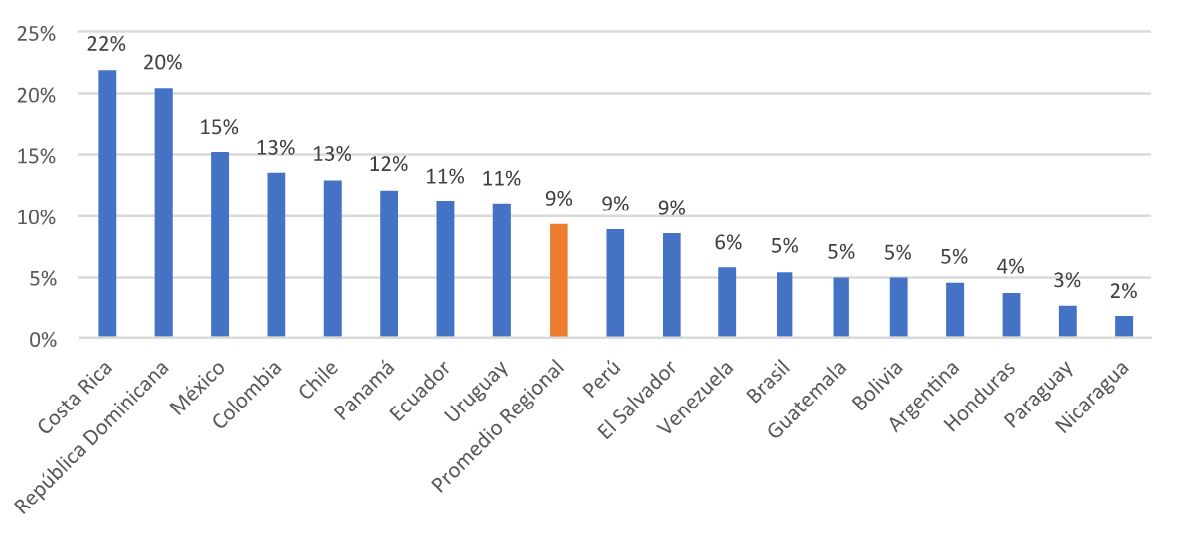Buddha, the prince who became a beggar, said that the only constant thing in life is change. Today, over 2,500 years after Buddha’s time on earth, the speed at which change is happening has never been faster.
Trade in Latin America and the Caribbean is being transformed not just by the digital revolution but also by the growing risks associated with a synchronized cooling of external demand, the volatility of commodity markets, and the effects of global trade tensions. Against this backdrop, electronic commerce emerges as a force of immense potential for regional trade, even though it is still in its infancy in Latin America.
Every year the IDB’s Institute for the Integration of Latin America and the Caribbean (INTAL) and Latinobarómetro conduct opinion polls to find out more about Latin America’s needs. The latest edition, published in the magazine Nuevo Factor del Comercio (link in Spanish), reveals new data on the potential for e-commerce in the region, where only one in every four people makes purchases online.
The potential of e-commerce
We interviewed 20,000 citizens from 18 countries to understand how Latin Americans use e-commerce in their daily lives. Although business-to-consumer (B2C) sales in the region reached US$47 billion in 2015, Latin America only accounts for 2% of global B2C spending, well behind its share in global GDP (7%) and international trade in goods (6%), according to the 2017 Trade and Integration Monitor.
The Latinobarómetro survey yielded these key data points:
- Only 26% of Latin Americans make online purchases or are willing to do so (see Figure 1). Of these, the ones who buy and sell the most on the web are men, users of smartphone and social media, the better-off, and younger people. Men shop more online more than women do (28% vs 23%). And online shopping rates among smartphone and social media users (34% and 31% respectively) also outstripped those of people who do not use these technologies (26% on average).
- As many as 31% of people under the age of 25 shop online but rates are as low as 14% among those over 65. E-commerce usage rates are highest among the more economically advantaged (33%) and lowest among the most disadvantaged sectors of the population (13%).
Figure 1. Buys or would like to buy products or services online.

Source: Latinobarómetro, 2018.
- The countries with the most avid people to use e-commerce are Venezuela and Costa Rica (47% and 40% respectively), while the least willing to use them are Ecuador, Nicaragua, and El Salvador (between 13% and 15%).
- E-commerce is more widely accepted in countries with higher GDP per capita, more internet users, and higher human development index scores, such as Argentina, Chile, Uruguay, Costa Rica, and Colombia.
- The use of online platforms to generate income is still in its early days in Latin America. Only 9% of Latin Americans say they have done so. The highest usage rates were found in Costa Rica (22%) and the Dominican Republic (20%), which contrasts with lows of 2% in Nicaragua or 3% in Paraguay (see Figure 2).
Figure 2. Use of online platforms to generate income

Source: Latinobarómetro, 2018.
- Six out of ten Latin Americans interpret the online use of private information for commercial purposes to be a violation of their basic human rights.[1] Privacy and how information will be used is of greater concern to people from more privileged socioeconomic backgrounds (68% among the most privileged groups) and users of smartphones (69%) and social media (67%).
- The poll also found that 73% are social media users, 89% have a mobile phone, and 47% have a smartphone.
- Cell phones have become as commonplace as access to drinking water and more people have smartphones than cars, hot water, or heating. In fact, 80% of the Latin Americans who have only one meal a day often own a cell phone, and 32% of them own a smartphone. Digital technology has become a way to connect even the poorest.
Expanding the use of e-commerce is a huge opportunity for the countries of Latin America and the Caribbean.
However, in addition to the challenges faced by traditional trade, other barriers affect online commerce, including the absence of efficient and safe payment methods, customs and international transport costs, logistics deficiencies and the lack of a regulatory framework to provide appropriate guarantees and protection for online transactions.
Listening to the voice of Latin Americans is essential if governments want to be able to anticipate their citizens’ demands and support the development of smart, customized tools that can help increase trade and make a positive impact on our lives. This new technology should be used in a spirit of service and inclusiveness so that the constant change the Buddha spoke of millennia ago will not end up benefiting the few while being a cause of suffering for many.
[1] The use of private information for commercial purposes online is a violation of a basic human right.


Leave a Reply